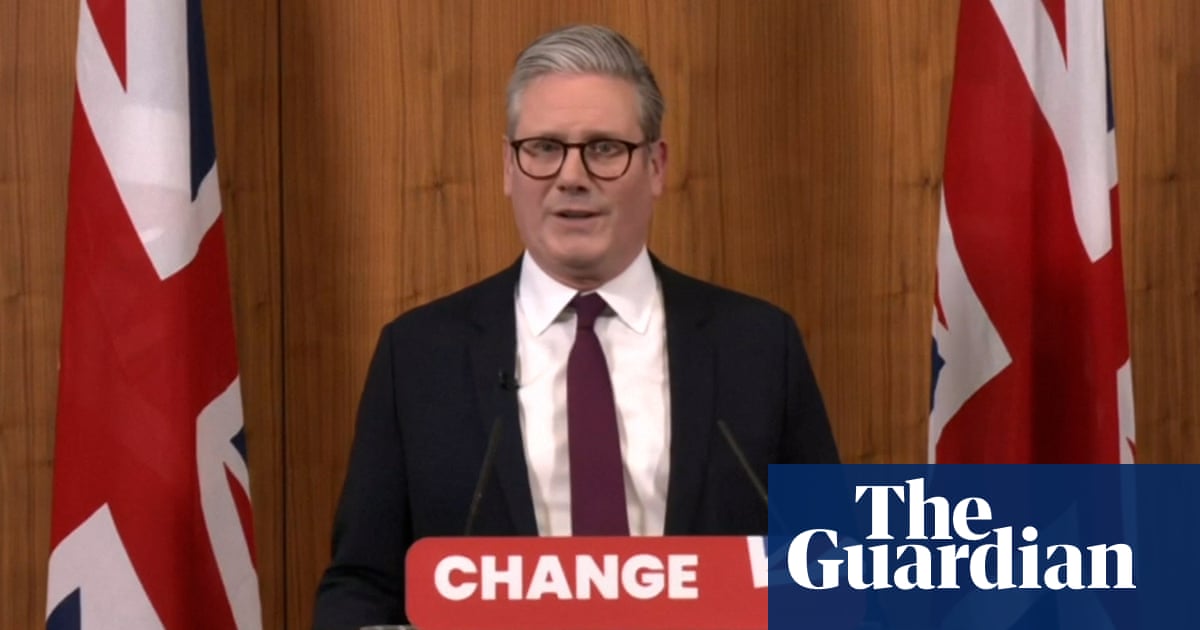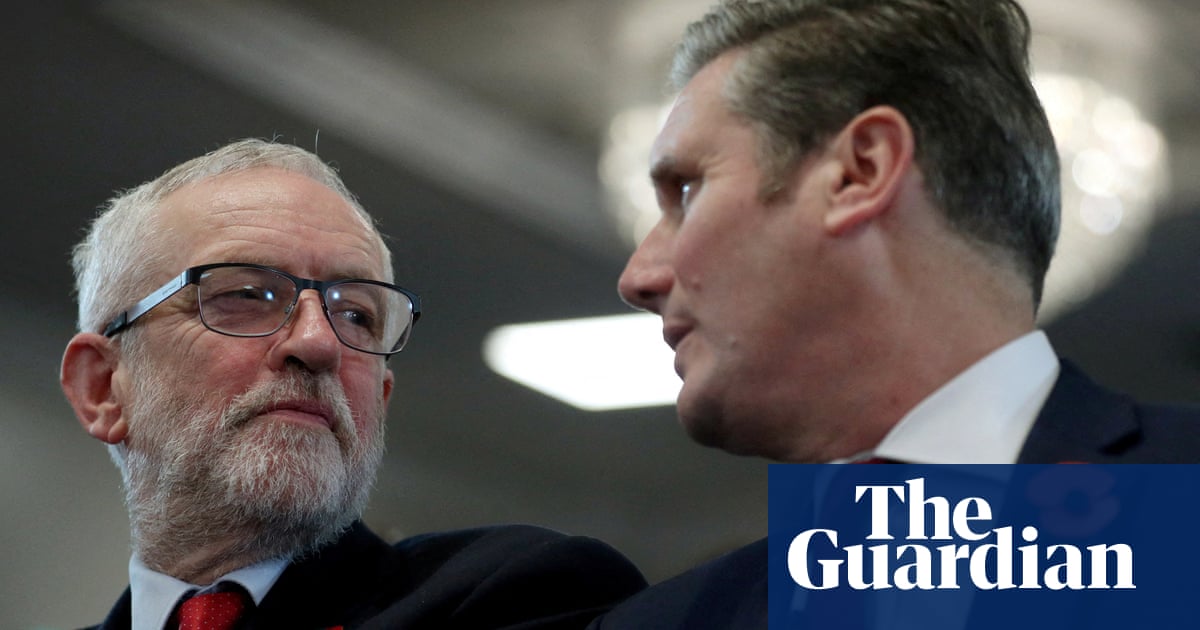
Keir Starmer has staked out his intention to make Labour a “competent, credible” opposition, using his first conference speech as leader to promise a new beginning for the party and to say that under Jeremy Corbyn it deserved to lose the 2019 election.
Making the speech in a near-empty arts centre in Doncaster as part of Labour’s virtual conference, Starmer condemned Boris Johnson in deeply personal terms, calling the prime minister fundamentally unserious, and “just not up to the job”.
He also criticised what he said were repeated government failings over coronavirus, as well as with education and social care, saying the state of the latter system was “a disgrace to a rich nation”.
Significant sections of the speech sought to recast Starmer as a different leader to Corbyn, based not just on perceived competence but Starmer’s repeated references to his patriotism, for example his family’s pride when he was awarded a knighthood at Buckingham Palace for his previous work as director of public prosecutions.
The speech won a generally favourable reception from those within Labour and the unions, although Momentum, the Jeremy Corbyn-linked campaign group called it “a missed opportunity to show substance”.
A key element was an appeal to former Labour voters in “red wall” seats in northern England and the Midlands to look again at the party. Starmer was introduced by Ruth Smeeth, the former Labour MP for Stoke-on-Trent North, who lost her seat in December’s election.
It was pointless complaining about the result, Starmer said, adding: “Let’s be brutally honest with ourselves. When you lose an election in a democracy, you deserve to. You don’t look at the electorate and ask them: ‘What were you thinking?’ You look at yourself and ask: ‘What were we doing?’
“The Labour party has lost four general elections in a row. We’ve granted the Tories a decade of power. The Tories have had as many election winners in five years as we’ve had in 75. It’s a betrayal of what we believe in to let this go on. It’s time to get serious about winning.”
Starmer stressed his efforts over combating antisemitism in Labour, saying the party was “becoming a competent, credible opposition”.
He continued: “But that’s not enough. I didn’t come into politics to be in opposition, and neither did you. I came into politics to change lives.
“Never again will Labour go into an election not being trusted on national security, with your job, with your community and with your money. That’s what being under new leadership means.”
With the emphasis on winning elections, Starmer mentioned only three Labour leaders, all of whom had become prime minister: Clement Attlee, Harold Wilson and Tony Blair.
After condemning what he called the government’s incompetence in areas such as this summer’s exams results, and the Covid-19 death toll in care homes, Starmer turned his fire on Johnson, saying that “a crisis reveals character like nothing else”.
“He’s just not serious. He’s just not up to the job,” Starmer said. “Whenever he encounters a problem, Johnson responds either by wishing it away or by lashing out.”
He continued: “While Boris Johnson was writing flippant columns about bendy bananas, I was defending victims and prosecuting terrorists. While he was being sacked by a newspaper for making up quotes, I was fighting for justice and the rule of law.”
The mention of Brexit was relatively brief, as has been the recent case with Starmer. Calling the leave or remain debate “over”, the Labour leader said: “The prime minister has repeatedly promised that he will get a deal. So go on and get one.”
Starmer ended with an appeal to voters who had abandoned Labour: “To those people in Doncaster and Deeside, in Glasgow and Grimsby, in Stoke and in Stevenage, to those who have turned away from Labour, I say this: we hear you.
“Never again will Labour take you or the things you care about for granted. And I ask you: take another look at Labour. We’re under new leadership.”
Allies praised Starmer for his tone and approach. Frances O’Grady, general secretary of the TUC, tweeted: “Keir proves he’s in touch with what working families want – a chance to get on in life, a decent job and a guarantee that hard work pays.”
But Momentum, which has been seeking to reinvent itself as a community campaigning group since Corbyn was replaced, said that while it welcomed the attacks on Johnson, the speech was lacking in specifics.
Andrew Scattergood, the organisation’s co-chair, said: “If Starmer wants to appeal to working-class voters, his pitch should be based on solidarity with the working class and defending their interests, not just slogans and platitudes.”
Scattergood pointed to comments by the shadow foreign secretary, Lisa Nandy, indicating a possible shift away from Corbyn-era commitments such as increased income tax for top earners, and public ownership of utilities.
He said: “Breaking your promises to your electorate is no way to win back trust. If Keir Starmer wants to win this country’s confidence, he must show he’s a man of his word, not another careerist politician who will say what is needed to win power and then abandon his promises once he gets there.”












